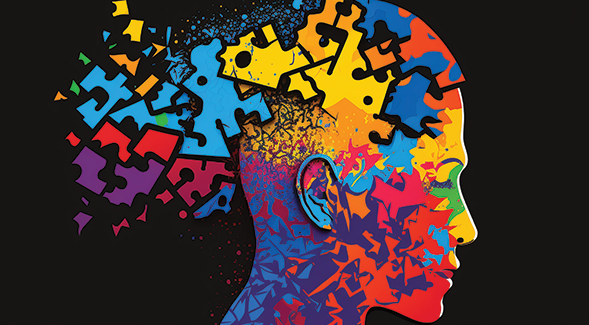San Diego State University: Advancing Diversity and Inclusion in Brain Research
Millions of people worldwide are affected by neurological disorders including Alzheimer’s disease, a form of dementia that currently has no cure and for which treatments are still under development. The impact of Alzheimer’s varies across communities, as factors like sex, ethnicity and socioeconomic status can be associated with individuals’ risk for the disease.
Researchers from San Diego State University and UC San Diego work to mitigate these inequities by investigating the social and behavioral science of neurological disorders, while advancing minority researchers in this field.
The San Diego Alzheimer’s Disease Resource Center for Minority Aging Research (AD-RCMAR) supports early-career researchers from diverse, underrepresented groups who study how Alzheimer’s disease and related disorders impact underrepresented communities. The center, managed jointly by SDSU and UCSD, is funded by a grant from NIH’s National Institute on Aging which has been renewed to provide over $3 million in funding over the next five years.
“This grant is meant to broaden the diversity within the Alzheimer’s research community, and also strengthen research on underserved communities in the Alzheimer’s field,” said Paul Gilbert, SDSU psychology professor and department chair in the College of Sciences.
Gilbert is one of the principal investigators for the grant, along with John Elder, SDSU School of Public Health professor of health promotion and behavioral science, and Alison Moore, professor of medicine at UCSD.
Each year, the grant funds three to five scientists to conduct 18-month-long pilot research projects with the goal that after, they will receive additional funding to expand on these studies.
With each project, researchers explore areas including the epidemiology of Alzheimer’s and related disorders, as well as preventative interventions and challenges faced by those caring for affected individuals. Studies focus on groups with disproportionate risks for these disorders, many of which are of particular interest in San Diego, including Hispanic/Latino, limited English proficiency and refugee communities.
“A lot of these communities are underserved and they’re just not getting the kind of health care and preventative services that other communities do,” Gilbert said. “So it’s super important to bring them into the focus, to try to better characterize this disease in these populations and look at barriers to being diagnosed and seeking help.”
Past projects found, for example, that Latin dance improved memory among middle-aged and older Latinos, in addition to examining factors affecting cognitive health, from high cardiovascular disease risk and elevated depressive symptoms, to vision and hearing impairments, as well as both short and long sleep durations.
The renewed grant also supports professional development opportunities for researchers, as well as the center’s newly established Community Engagement Core. This initiative will help the center strengthen its ties to the community by allowing researchers to interact and integrate with community agencies related to Alzheimer’s disease.
The application period for this grant is opening in the next few months.

